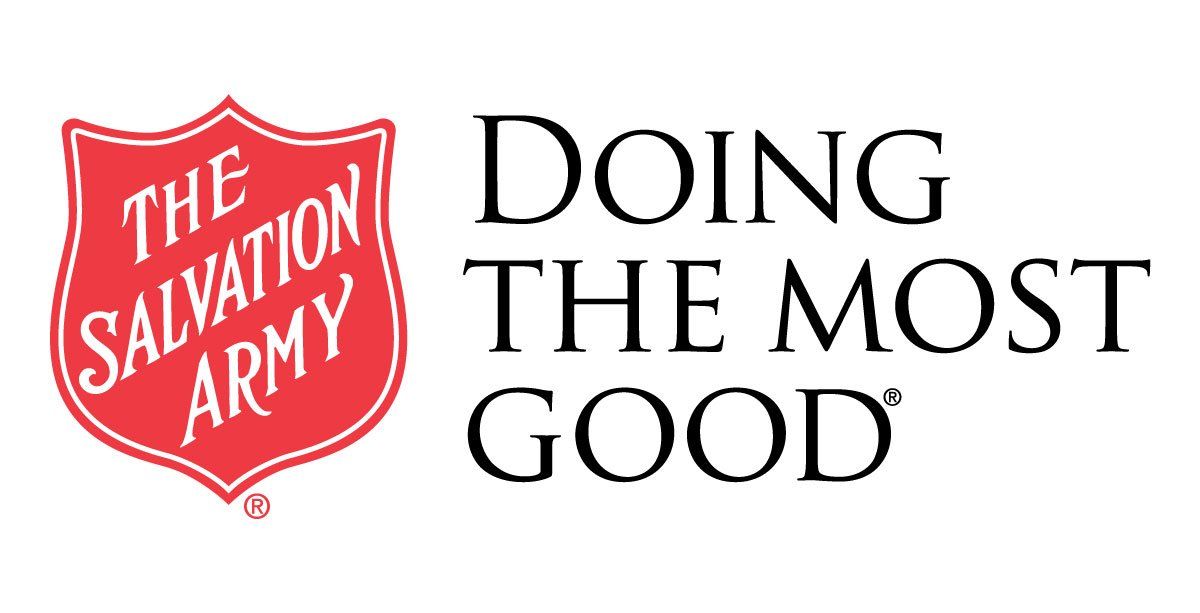Harris House
Contact:
Admissions
314-631-4299
South City
8315 South Broadway
St. Louis, Mo 63111
Creve Coeur
12935 North 40 Dr. Ste. 110
St. Louis, Mo 63141

Overview
Harris House provides alcohol and drug rehab services to men and women age 18 and above. Our alcohol and drug rehab programs are grounded in the Twelve Step philosophy for lifelong recovery. They are supplemented with medication management and Cognitive Behavioral Therapy (CBT) process groups, based on an individual treatment plan. Many Harris House residents have a dual diagnosis, with a mental illness such ad depression, anxiety or bi-polar disorder in addition to their substance abuse problem. Our treatment programs take all factors into account.
Our 28-day in-patient treatment program for alcohol and substance abuse is among the top programs in the region and offers affordable and effective treatment, based on outcome measurement studies.

28-Day Intensive IN-PATIENT Program
Our traditional 28-day substance abuse treatment program is for men and women age 18 and over who have alcohol and/or drug abuse problems. Harris House provides individual treatment plans for each client that typically include individual counselling plus two group meetings every morning and three group sessions every afternoon and evening.
Group sessions can be either educational or process-oriented. Educational groups cover the physiological damage of addiction to the body, disease theory, Alcoholics Anonymous steps, trigger identification, and relapse avoidance. Topics of the process group sessions include how to deal with feelings in a healthy way, family dynamics and reunification basics, anger management, stress management, spirituality, and how to have sober fun.
Weekly counselling sessions involve both the family and the client in the alcohol and substance abuse treatment plan. Although clients are busy with program activities all day every day, the schedule is relaxed a bit on Sundays, and clients are able to have some free time. Visiting hours are on Sunday afternoons.
The Harris House 28-day inpatient treatment program is in a state-of-the-art facility in a safe and secure fenced urban area. Clients have semi-private rooms. Detox programs are conducted at Harris House. Airport pickup provided to clients from outside St. Louis. Graduates of our program are encouraged to continue in our Intensive Outpatient Program as needed and weekly aftercare groups for a year after treatment.

Intensive Outpatient Program | IOP
Recognizing that people at different points in the recovery process need different levels of care, Harris House now offers Intensive Outpatient Programs (IOP) from 9am-12noon at our South St. Louis location and 6-9pm at our new West St. Louis County location. The Harris House IOP is designed for men and women with alcohol and drug problems who do not require more intensive levels of residential treatment.
Intensive Outpatient Treatment (IOP) offers:
• Successful treatment option for working adults
• Alternative to inpatient treatment
• Continuum of care for clients leaving a residential treatment program
IOP group sessions are Monday, Wednesday and Thursday from 6pm to 9pm. Group sessions include both psycho-educational and process groups on important recovery topics.In addition to group sessions, each client will work with a dedicated counsellor to develop an individualized treatment plan. Treatment plans identify unique problems of each client with treatment goals and time specified action plans. The length of the IOP program is between four to twelve weeks, or longer, depending on client need.

Transitional Housing | Level 1
Our Transitional Housing Level 1 program includes subsidized housing, nutritional meals, and individual and group counseling for up to one year. Graduates of the 28-day alcohol and substance abuse rehab program at Harris House receive priority admission. For others, the admission process requires an appointment for a screening interview, at which time a mutual decision will be made regarding the appropriateness of this program. Once accepted and placed on a waiting list, the individual must call Harris House every week day to hold a place on the list.
The Transitional Housing Level 1 program (previously known as our long-term residential program) is designed to provide ongoing alcohol and substance abuse treatment. Classes are provided to give clients insight into dealing with issues that could become relapse triggers, including anger management, trauma recovery, stress management, parenting skills, and family reunification. Employment skills are emphasized, including resume preparation, job targeting, and interviewing practice.
The majority of clients in the Transitional Housing Level 1 program have a dual diagnosis, with a mental illness such as depression, anxiety disorder, or bipolar disorder, along with addiction to drugs or alcohol. Weekly individual counseling sessions are included, as well as up to eight hours of classes or group work.
Clients age 21 and older are eligible for highly subsidized rent and meals in separate buildings and programs for men and women. More than 50% of our 28-day program graduates join our Transitional Housing Level 1 program to continue building their recovery skills in familiar surroundings with familiar faces. Men and women are housed in separate buildings, and everyone is expected to be employed after the first weeks in this program.
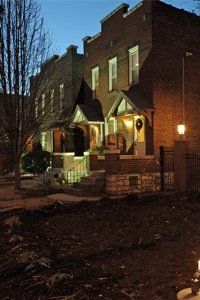
Transitional Housing | Level 2
Transitional Housing is for people preparing for independent sober living.
Our Transitional Housing Level 2 Program provides subsidized housing for up to one year, with separate male and female residences. No meals are included, and clients learn to prepare meals for themselves in their residential kitchen. Clients are expected to be employed when they enter this program, and are required to facilitate recovery discussion groups with the beginning residents participating in the Transitional Housing Level 1 program. Clients also meet with their counselor once a month.
Valley Hope Association
Contact:
Admissions
314-514-9220
Program does NOT take Medicaid or Medicare, HMOs or Tri-care
NOTE: Insurance companies often refuse coverage for in-patient treatment if patient has been locked up for a while or otherwise does not seem to have a need for detox or immediate care
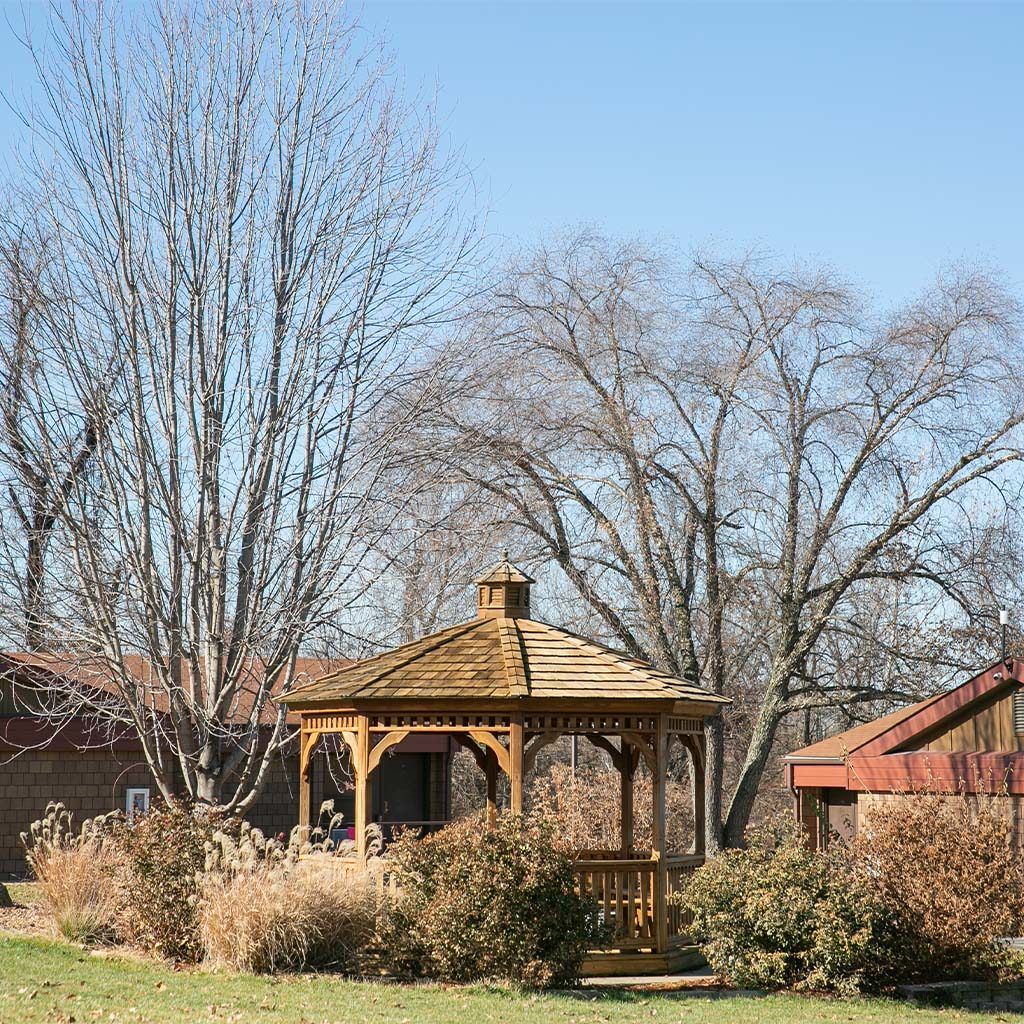
Overview
Valley Hope believes drug rehab should be approached by treating those fighting addiction with unconditional positive regard. The patient needs healing and attention to many areas, including the physical, mental, spiritual and social areas of their lives. Drug rehabilitation according to an individualized treatment plan is designed to provide the right combination of support and understanding to help the individual learn to live sober and happy. It is important to recognize that many of our services offer a group setting and environment, so that the person spends time with other people affected by the same chronic disease and problems. We see our patients as human beings with an illness, not a moral deficiency, and provide support in a loving and caring environment. Much of the “therapy” takes place between formal treatment schedules and sessions. Valley Hope’s drug and alcohol rehab treatment services are tailored to meet the needs of each patient. The basis of our program is individualized treatment and variable lengths of stay. We utilize the American Society of Addiction Medicine (ASAM) Patient Placement Criteria to determine admission, continuing stay and discharge decisions for all levels of care. Valley Hope offers several treatment services for individuals fighting addiction to alcohol or drugs.

Treatment Services
Treatment services offered by the Valley Hope Association include:
• Residential Inpatient
• Medically Monitored Detox
• Day or Partial Care
• Outpatient Treatment
• Continuing Care
• Family Care
• AC/ESS Treatment

Payment Options
Beyond offering multiple addiction treatment Services, Valley Hope offers multiple payment options for services offered through facilities. Valley Hope feels that every patient has very different needs in both approaching addiction, as well as paying for addiction treatment services. Some patients have insurance that will help pay the costs to enter a rehab center and some don’t. Some patients can afford to pay up front for the costs of treatment, while there are those that may need financial assistance or an extended period of time to make payments. Because an individual’s financial position should not be the primary factor that determines whether or not that person gets help, our nationwide addiction treatment centers have treatment and financing options designed to fit the needs of most people.
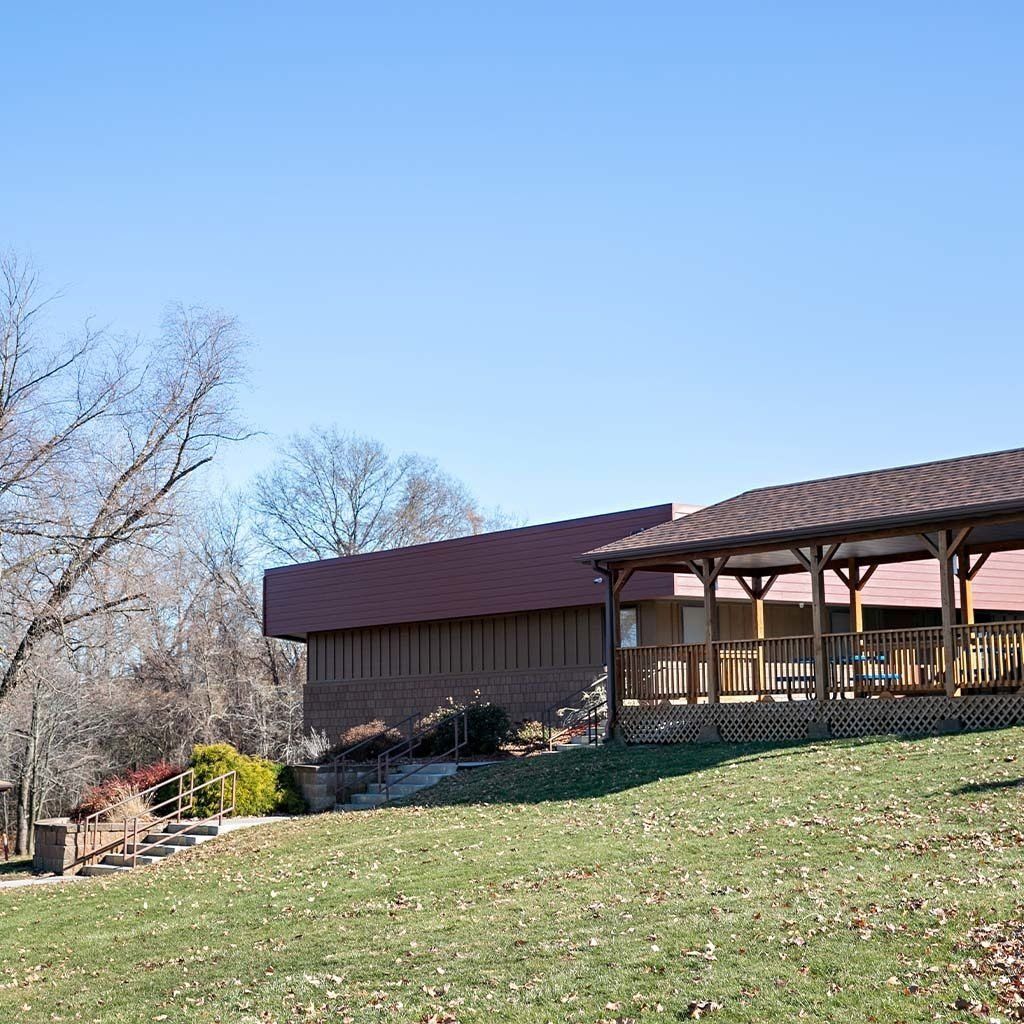
Boonville Residential Addiction Treatment
• 71-bed free-standing facility
• State Licensed, serving ages 16+
• JC Accredited
• Medically Monitored Detox
• Residential, Partial/Day
• Continuing Care
• Evaluations/Assessments

Chesterfield Outpatient Addiction Treatment
• State Licensed and JC Accredited
• Six-Week IOP offered day and/or evenings
• Relapse Prevention
• Individual, Family Counseling
• Evaluations/Assessments
• Continuing Care
The Salvation Army
Contact:
Admissions
St. Louis, MO Harbor Light Center
3010 Washington Avenue
St. Louis, MO 63108
Phone (314) 652-3310
Fax (314) 286-3230
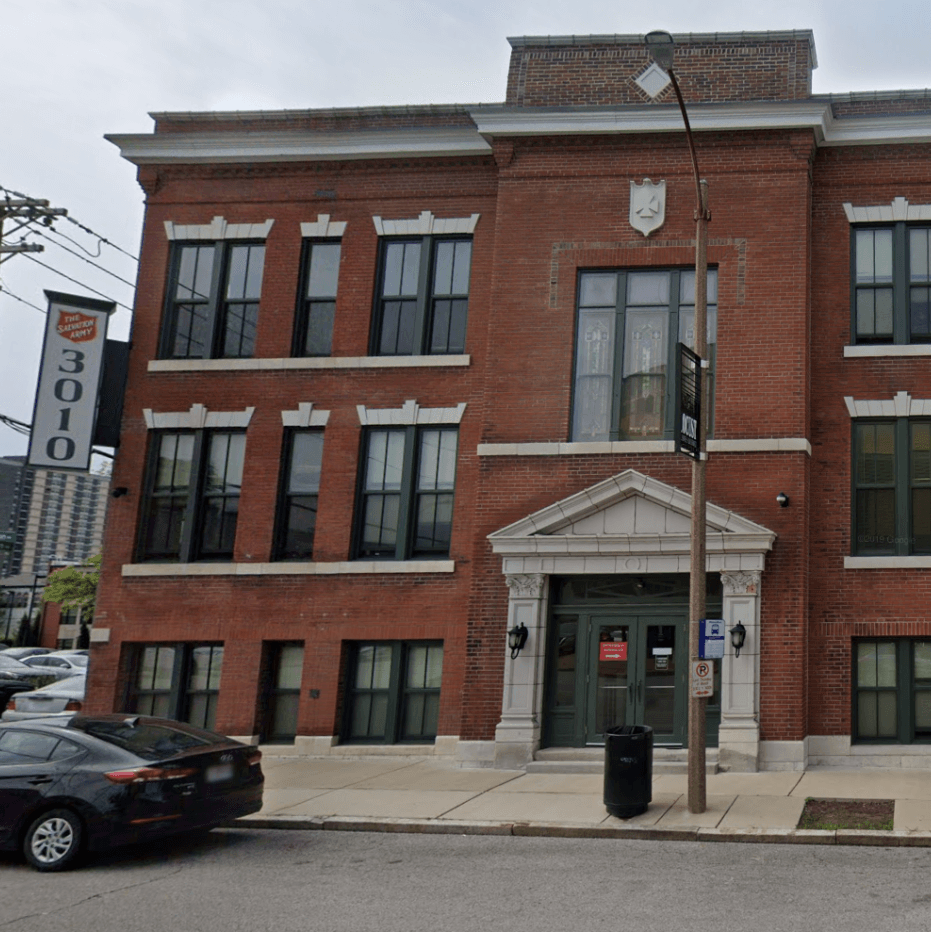
St. Louis, MO Harbor Light Center
Programs
Alcohol & Drug Treatment (RESIDENTIAL)
Alcohol & Drug Treatment (NON-RESIDENTIAL)
CenterPointe Hospital
Contact:
Admissions
636-441-7300
1-800-345-5407
Location
4801 Weldon Spring Parkway
St. Charles, Mo 63304
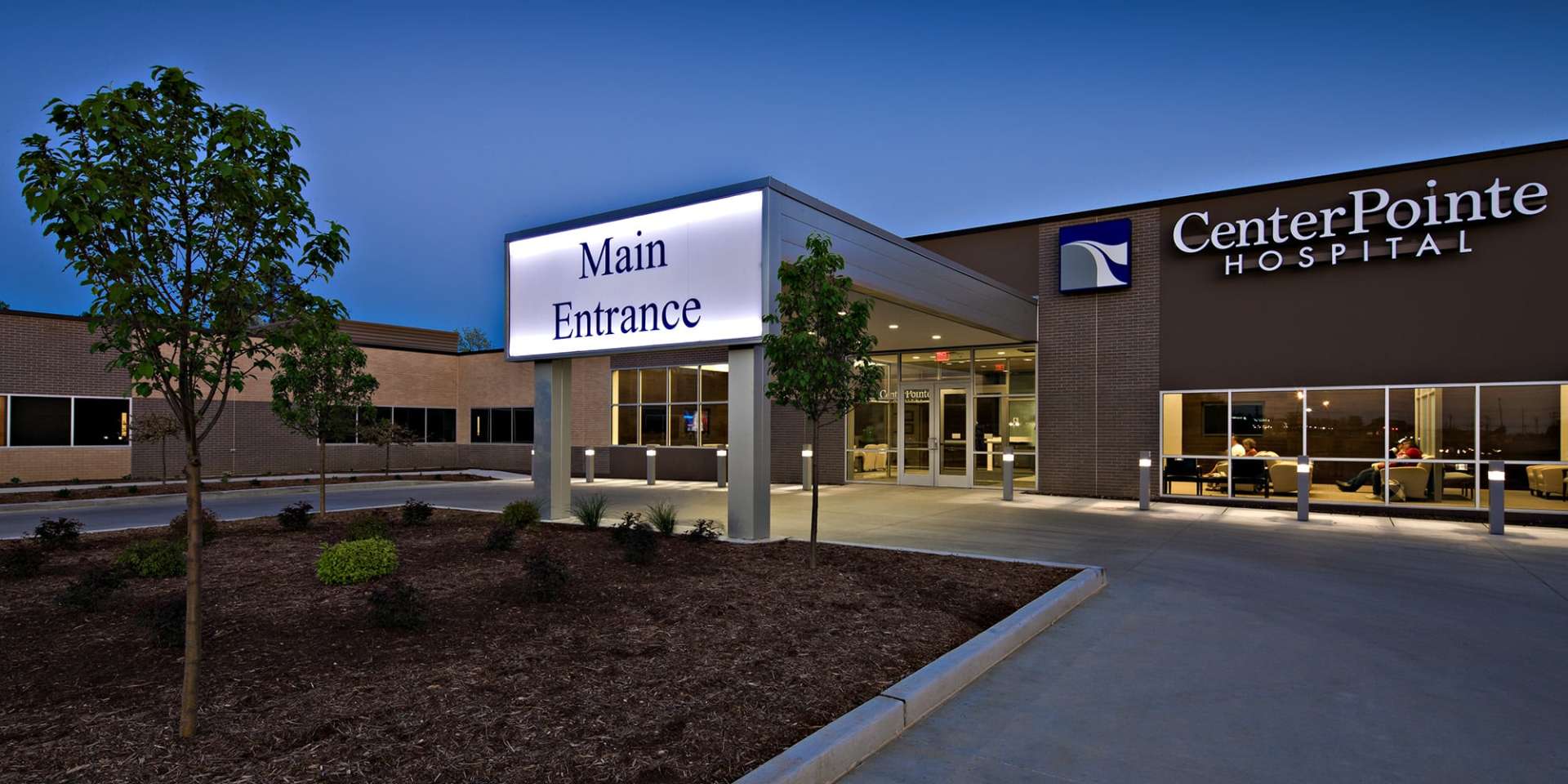
Specialists in Addiction Treatment—CenterPointe Hospital
CenterPointe’s residential and outpatient treatment programs offer hope as well as the coping skills necessary for individuals and families to restore relationships, careers and health, and begin living a life of recovery.
For nearly 10 years, CenterPointe Hospital has provided the St. Louis Metro Area’s only private treatment services addressing addictions to alcohol, prescription drugs, opioids and other mood altering substances. Our adult residential and outpatient programs have helped hundreds of individuals learn to manage their addictions and develop the skills necessary to live without the substances controlling their lives. Through our initial crisis intervention, stabilization and medical and mental evaluation process, our treatment team develops an individualized program to address each patient’s specific treatment needs.
Under the direction of nationally recognized addictionologist, Medical Director David Ohlms, MD, our treatment program—individual and group therapies, education components and medical management—forms the basis of each patient’s treatment plan to build toward a lifetime of recovery. Based on a 12-step model, patients learn how to manage each day and its challenges without mood altering substances and begin rebuilding their lives in recovery.
In addition to our individualized addiction treatment, CenterPointe offers specialized programs for:
• impaired medical professionals
• dual diagnosis (concurrent or co-existing psychiatric disorder and addiction
• medication-assisted recovery (treating opioid or heroin addiction)
• family education.

In-Patient, 2 weeks
Residential Treatment at CenterPointe Hospital’s Addiction Treatment Center offers adults 18 and over intensive, holistic treatment for an addiction to alcohol or other drugs, often called a chemical dependency. Based on a 12-step treatment model, patients on our 32-bed Residential Unit participate in a 24-hour inpatient level of care that initiates the recovery process and promotes a substance-free lifestyle.
Treatment Goals
include helping individuals learn:
• about chemical dependency as a disease that is chronic, progressive and, unless properly treated, can lead to devastating physical and mental problems as well as family, social, employment and financial difficulties.
• that addiction is an illness that affects not only their lives, but the lives of their families
• the coping skills necessary to establish and maintain a life of recovery.
Through intensive therapy, education and other treatment modalities, CenterPointe provides individualized treatment to address the emotional, physical, spiritual and psychological needs of patients with chemical dependencies.
Residential Unit treatment components
• individual and group therapies
• discussion groups
• 12-step meetings
• reflection/journaling
• education
• coping skills
• recreation therapy
• communication techniques
• lectures and films
• family education

Outpatient Treatment (4-6 weeks)
Depending upon the severity of an individual’s addiction, the level of support he or she has from home, work or other settings, and other factors determined in CenterPointe’s assessment/evaluation, some patients may be suited for a less intensive level of chemical dependency or addiction outpatient treatment. With program components that provide the same quality of information, education, care and opportunity for recovery, CenterPointe’s day and evening outpatient programs offer qualifying patients an alternative to an inpatient stay in the Residential Unit.
CenterPointe offers two outpatient treatment program options for which patients may be eligible based upon their evaluation and the medical director’s discretion:
Evening Intensive Outpatient Program (IOP)
The evening intensive outpatient program (IOP) provides a less intensive level of care that may be used as the point of entry in the continuum of care or following treatment in the Residential Unit. Patients in IOP usually have a strong family and friend support system and may be able to maintain their employment obligations.
Patients in IOP usually meet three evenings each week for an average three to four weeks as determined by the admitting physician.
Medication-Assisted Recovery Outpatient Suboxone® Program
The medication-assisted outpatient Subox-one program is similar in scope and intensity to CenterPointe’s IOP. In addition to the customized therapeutic, educational, didactic and behavioral components of treatment, patients in this program receive pharmacological support to remain sub-stance-free with medically monitored and administered doses of Suboxone®, a medi-cation designed to help opiate addicts manage their addiction and opiate with-drawal symptoms.

Outpatient Addiction Treatment Care with Housing Options
CenterPointe recently introduced two new levels of addiction outpatient care that include housing options within the Addiction Treatment Center:
Residential Outpatient Care
Patients receiving treatment for addiction to alcohol or other drugs in CenterPointe’s PHP or IOP who do not require the intensity of treatment on the Residential Unit but need overnight lodging, may be eligible for supported housing at CenterPointe. This level of care provides lodging on the Residential Unit, as well as some additional therapeutic, support and activity services.
Extended Care
CenterPointe offers care for patients who have completed addiction treatment at CenterPointe or are maintaining sobriety and working toward continuing recovery, but require overnight housing and the support of continuing care. Patients in Extended Care receive treatment and therapeutic services, often maintain their employment commitment and have a lodging on the Residential Unit for overnight stays.
ARCA
Contact:
Admissions
314-645-6840 (check coverage and learn about our programs covered by your insurance)

Overview
The ARCA and MIRA addiction treatment programs are radically different than past addiction treatment protocols, and grounded in science.
For too long, patients impacted by addictive disorders have had very limited treatment options as a result the outcomes were shockingly poor. To add insult to the injury, the failure was blamed on the patients. Medical detoxification combined with appropriate anti-craving medications, relapse prevention counseling, and psychiatric services offer treatment in the natural home environment of the patient. This integrated addiction treatment approach is now referred as Medication Assisted Treatment (MAT).

Programs
ARCA is acutely aware of the complex nature of the treatment of addictive disorders, particularly in the early stages of recovery and upon completion of the formal treatment program.
There are patients, particularly young adults, who should be not return to an unstable home environment. Recently, ARCA has opened several Temperance Homes in St. Louis, Missouri for young male adults who can continue aftercare, find work, and live in a stress-free environment to maintain long-term recovery. Several more homes are being planned for the coming years.
• Confidential Treatment Options for Healthcare and Business Professionals
• Outpatient Addiction Treatment Options
• Transitional Living Program Options


